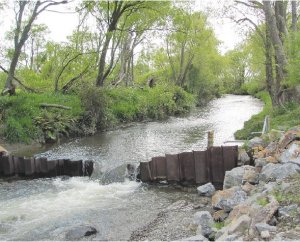Winter applications generally are least effective at promoting grass growth and excessive drainage can result in nitrate leaching before plants take it up.
“It’s important that farmers have clear information about the risks involved with winter nitrogen applications on their individual properties,” says Tikkisetty.
“A property’s nutrient budget, combined with a feed budget, helps farmers understand whether they are using too much or too little fertiliser. From there, they can potentially manage costs better and reduce their impact on the environment by working out a pragmatic nutrient management plan.”
A key term to understand is “response rate”.
“This response rate is the amount of pasture grown in terms of kilograms of dry matter per hectare per kilogram of nitrogen (N) applied.
“For example, when 20 kg N/ha is applied and an additional 200 kg DM/ha of pasture is grown the response rate is 10 kg DM/kg N applied.”
Response is dependent on factors such as soil temperature, plant growth, soil moisture, deficiency of available N, and rate of N applied.
Timing is a key consideration.
“It is good to apply nitrogenous fertiliser when the pasture cover is between 1,500 to 1,800 kg DM/ha. This ensures that there is sufficient leaf area for photosynthesis leading to good pasture growth.”
Profitability of applying N depends on response and utilisation of extra feed grown.
“ Therefore, N needs to be applied to fill genuine feed deficits. Anticipation of feed deficits and application of N fertiliser four to six weeks in advance is critical to filling these deficits with quality feed and getting the best economic response from fertiliser use.”
Best responses occur on fast growing pasture, when other factors such as moisture and soil temperature are not limiting. In winter, responses are lower and slower than at other times of year. Response rate also declines when rate per application exceeds 40kg N/ha.
Excess nitrate in groundwater will restrict the use of the water for drinking and can have other impacts on water quality, he warns. Lateral movement into streams and lakes can affect algal and plant growth, fish and other animal habitats.
“The bottom line is that avoiding or minimising N fertiliser application in late-autumn or winter reduces the likelihood of any direct leaching to waterways.”

















